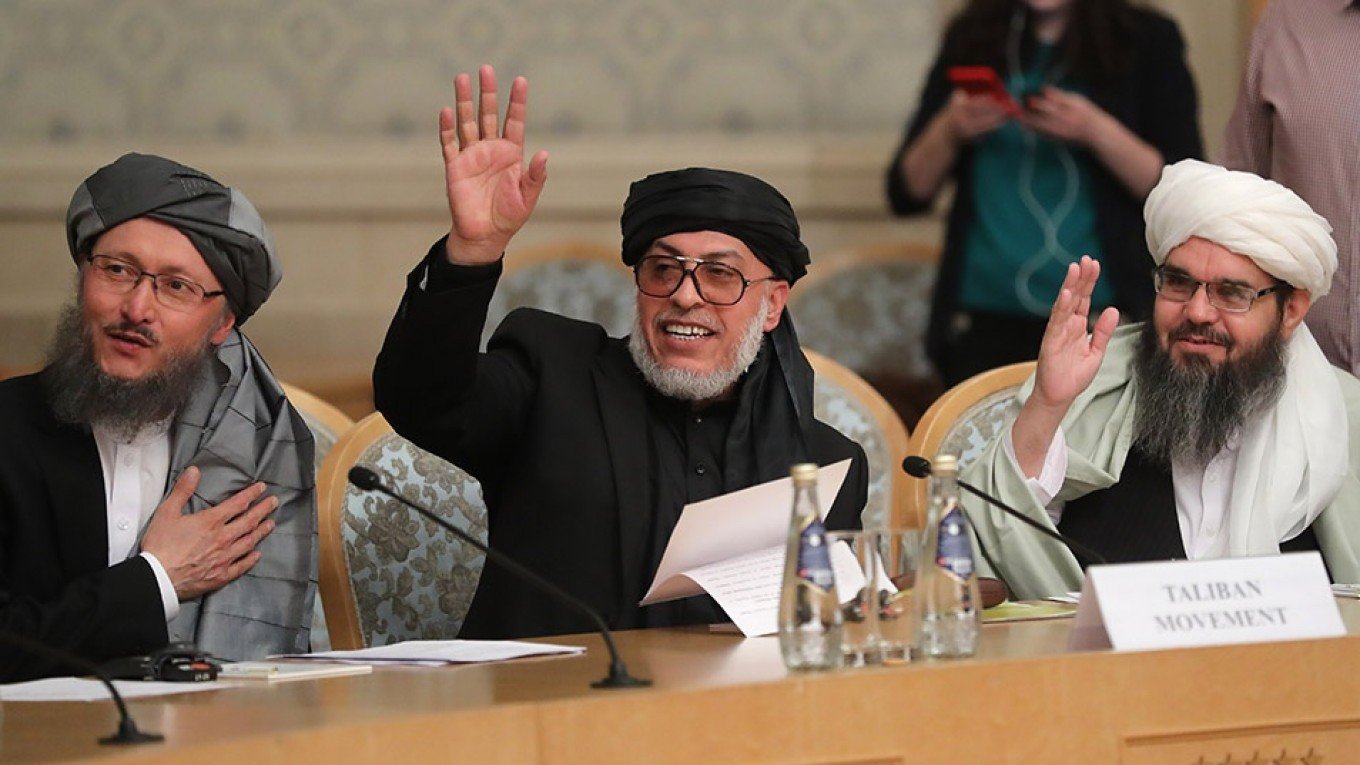
Any peace measures are doomed to failure in the absence of Afghan government leaders whom Taliban have outrightly refused to talk to and, unfortunately, the US has acquiesced in

Afghan "peace requires agreement on four issues", says US Special Representative for Afghan Reconciliation Zalmay Khalilzad. These issues are counter-terrorism assurances, troop withdrawal, intra-Afghan dialogue, and a comprehensive ceasefire.
In January, Khalilzad informed that he and Taliban made progress on two issues: counter-terrorism guarantees on Taliban’s part in return for US-led NATO troop withdrawal from Afghanistan. On March 12, Khalilzad broke the news of having "agreed in drafts" on Taliban counter-terrorism guarantees and the withdrawal of troops.
On April 1, Khalilzad was in Afghanistan to work on the third issue of an intra-Afghan dialogue between Taliban and the rest of Afghans including the Afghan government. Khalilzad was in the country to help form an Afghan team that will talk to Taliban. Here is a genuine problem.
In talks on two issues between the US and Taliban in Doha, the Afghan government, under President Ashraf Ghani, had no participation. What added insult to injury was that even in Afghanistan it was seemingly not Ghani but Khalilzad who choreographed meetings with Afghans of various persuasions. It should have been the exclusive prerogative of the Afghan government to evolve a consensus in the country to form an inclusive team that will talk to Taliban.
Zalmay Khalilzad encroached upon the authority of Afghan government. "We look forward to the formation of a unified, inclusive Afghan negotiating team to lead the #Afghan Peace Process", tweeted Zalmay Khalilzad. While in Afghanistan, Khalilzad met with various segments of Afghans including the government officials, women, and tribal elders and so on. It couldn’t have been more embarrassing when the US delegation avoided to even sit in a meeting where Hamdullah Mohib, Ghani’s National Security Adviser, was in attendance. The peace process is not even remotely Afghan-led.
First, Khalilzad and his delegation are Americans. Secondly, Taliban, although Afghans, do not have any representation in either house -- House of People and House of Elders -- of the Afghan legislature, the National Assembly. Their following mainly comes from madrassa students, fellow militant Islamists that ascribe to their ideology and a chunk of Pashtuns from across the country.
Similarly, the likes of former president Hamid Karzai and former National Security Adviser, Muhammad Hanif Atmar -- whom Taliban have engaged with in talks at least in Moscow -- are not the elected representatives of the Afghans. The duo’s value to Taliban stems from their common opposition to President Ghani. The only true representation of Afghans, in principle, comes from their elected representatives. Article 4 of the Afghan constitution states: "National sovereignty in Afghanistan shall belong to the nation, manifested directly and through its elected representatives." Unfortunately, elected representatives of Afghans continue to be excluded from the peace negotiations.
Common Afghans, especially women, politicians, Taliban and Afghan government are all enthusiastic about the success of the talks. Largely excluded, the Kabul government cannot opt out of talks though. Declining to participate in peace talks means risking the support of the US, which is the main reason why a government exists in Kabul at all. More, there is a groundswell support for talks.
The National Unity Government (NUG) can hardly put a unified resistance. It is a fraternity of disparate and disgruntled lot of a Pashtun President, Tajik Chief Executive Officer and Uzbek Vice President. Their unity government was the result of a US-brokered agreement between Ashraf Ghani and Abdullah Abdullah after both claimed victory in the 2014 controversial presidential election. One wonders how Khalilzad would convince the emboldened Taliban to talk to the Afghan government in mid-April in Doha.
Chances are Taliban will be discussing peace measures including the formation of an interim setup in Afghanistan with US-delegation led by Khalilzad, Afghan politicians who are not part of the incumbent government, and some representatives from Afghanistan’s diverse ethnic groups and women leaders.
Back in February, Taliban had one such meeting in Moscow where they met with Hamid Karzai and Mohammad Hanif Atmar and at least one Afghan woman. Probably, in attendance will also be the Afghan government representatives but not as official delegation representing Kabul.
In November 2018, Russia hosted talks between Taliban and Afghanistan’s high peace council at Moscow’s President hotel, alongside representatives from Iran, China, Pakistan, Tajikistan, Uzbekistan and Turkmenistan. The High Peace Council participated "in its own capacity as a national but non-government institution," stated Afghan foreign office statement back in November 2018. Any peace measures are doomed to failure in the absence of Afghan government leaders whom Taliban have outrightly rejected to talk to and, unfortunately, the US has acquiesced in.
The Ghani administration has rejected the idea of an interim setup. "An interim government means going back to square one, scrapping the constitution and reversing the gains of the past 18 years," wrote Samim Arif, the deputy spokesperson for the Afghan president, in an opinion piece on Aljazeera website. "There will be no interim government or a so-called transitional arrangement," tweeted Dr Abdullah Abdullah, the Chief Executive of Afghanistan, on April 1. Both candidates have their eyes on the slot of president in the coming presidential election, the holding of which is in jeopardy due to likelihood of an interim government.
Afghanistan is at the critical juncture of history. If not rectified, the peace talks are pushing the country, once again, towards another episode of instability. An all-inclusive peace is the way forward.